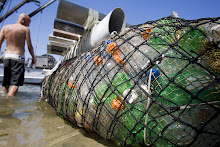Burma Cyclone Aid Report
Avaaz Members from 124 Countries Donate $2,000,000 to the Burmese People
The Cyclone | |||
 | On May 2nd, a massive cyclone struck the coast of Burma. The impoverished and vulnerable Burmese people were not warned by their military rulers. As a wall of water swept the lowlands of the country, as many as 100,000 were killed and 2 million more lost their homes. The survivors continue to face hunger, lack of medical care, and the threat of epidemic and deadly disease. | ||
Burmese Military Junta Stops Aid | |||
 | The world rushed to deliver aid -- but Burma's rulers stopped relief workers at the border. Incompetent and suspicious, the ruling junta feared that a foreign presence could undermine their power by bringing greater awareness of their brutal rule. Three weeks later, a donors' summit has been scheduled that may reach a compromise on some aid being brought in, but the needless delay heaped daily suffering on Burma's people. | ||
Our Response -- Go Around the Junta | |||
| Since last year, Avaaz has built a strong relationship with Burmese monks and civil society groups, building political pressure and raising funds during and after the democracy protests. After the cyclone, we worked with these groups -- the most respected and trusted institutions in Burmese society -- to do what their government would not: bring the people aid. Unlike governments, we didn't wait for the Burmese government's permission to send help. Avaaz members in 124 countries stood with the people of Burma, donating almost $2 million (1.3 million Euros) in a matter of days. | |||
How the Money is Spent | |||
 | Once the money arrives and is distributed to aid groups and monasteries, it is used to purchase rice, medicine, fuel and other supplies required to rescue, house and feed the survivors of the cyclone. Even in many of the hardest-hit areas, local markets are still working, with merchants bringing goods from other regions. In other areas the monks and other groups are able to drive supplies in, or move them by foot. The map at left shows some key locations where our aid has reached survivors. This work carries some dangers; Burmese junta has harassed and, in one case, attacked the groups we are working with. But in the vast majority of cases, soldiers simply arrive, warn our partners that their work must be authorized by the government, and leave. Once they are out of sight, the aid work continues. It is a challenge in such circumstances to exercise complete oversight over how the money is used -- most of the work is in secret. But we have chosen to work only with the most universally respected institutions, and we have asked them to provide detailed lists of monasteries and groups who receive it. These details allow us to verify receipt of the funds. | ||
| | |||
Another Chapter in the People Power Story | |||
 | Yesterday, UK Prime Minister Gordon Brown predicted that global people power, organized through the internet, would be a major driver of change in Burma. Avaaz has shown many times how a global voice can impact the world, but with this campaign we put our money where our voice was -- we didn't just call on governments to act, we stood with the people of Burma and took direct action. Our ability to rapidly pool the small amounts of money each of us can give into a large combined amount is a powerful way to make a difference in the world. If you are one of the 25,062 Avaaz members who donated, please know that we have heard many words of gratitude for your help from our Burmese partners. They still need our help -- click through to the site if you would like to donate now. Here's the link: https://secure.avaaz.org/en/burma_cyclone/33.php | ||









